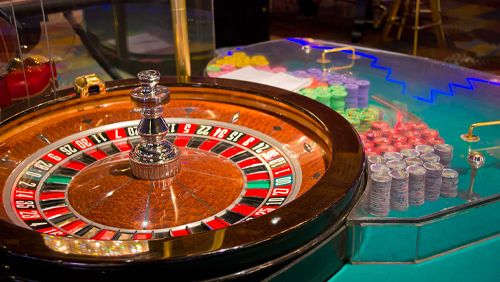
Park Lane Club, an upscale cardroom in London, is currently on hiatus after its owner, Silverbond Enterprises, lost its gaming license at the beginning of the month. The UK Gambling Commission (UKGC) determined that the company’s leadership – primarily, Latvian entrepreneur Vasilijis Melniks – wasn’t deserving of a license due to an ongoing investigation into Melniks and his alleged ties to embezzlement and money laundering in Ukraine. However, there’s a problem. Melniks is not the head of Silverbond and it now appears that no one outside of the company knows who the real owner is.
The UK has an obscure law that will most likely be amended now that the Park Lane Club mystery has surfaced. The UK Companies Act states in Section 790ZG that directors of certain public companies are not required to identify themselves if, by doing so, their safety could be put at risk. The cardroom has used this law to keep its leadership under wraps, but it was previously known that Melniks was leading Silverbond. According to a company representative, though, he hasn’t been involved with the company in over two years.
Park Lane Club Compliance Director Debbie Dunn told The Evening Standard, “Following the sale of the company in 2018, [Mr.] Melniks is no longer a shareholder nor a director of the company, so we are unable to comment on his affairs.” However, she wouldn’t elaborate, asserting that the company is “currently going through a protracted corporate change of control process” that could be compromised if she were to reveal any additional details.
In 2018, Melniks found himself in the hot seat as a Ukrainian court judge ordered his assets frozen. He has been accused of embezzling and laundering around $64 million from the country’s state-owned energy company, and that court action led the UKGC to investigate whether Silverbond should hold a license. Apparently, according to the gaming regulator, it shouldn’t.
The statute of the Companies Act was meant to be used to protect certain individuals who could be targeted by criminals, foreign governments and more. Those who work in the defense industry, for example, are especially vulnerable, as the information they carry could compromise state security. However, the Park Lane situation has now revealed that perhaps some other companies were taking advantage of the law, but probably not for much longer.
According to Graham White, a former UK gaming regulator, it’s “ludicrous” that anyone working in an industry where money laundering, such as gambling, is prevalent would be able to claim anonymity through the Companies Act. He asserts, “It seems incredible that the ownership of casinos in this country can be a secret. I find it quite staggering, frankly. And we need to know fuller details about why the license was revoked. What due diligence did the [UKGC] do on the past owner and what on the present owner?”
Park Lane was already on a break because of COVID-19, so the current lack of a license won’t hinder its revenue operations. However, if it plans on rejoining the scene, the UKGC will almost certainly demand full details of who is in charge of Silverbond. If the company refuses to provide the information, it won’t take long for lawmakers to add an amendment to the legislation to specifically exempt casinos and gaming operators from remaining anonymous.